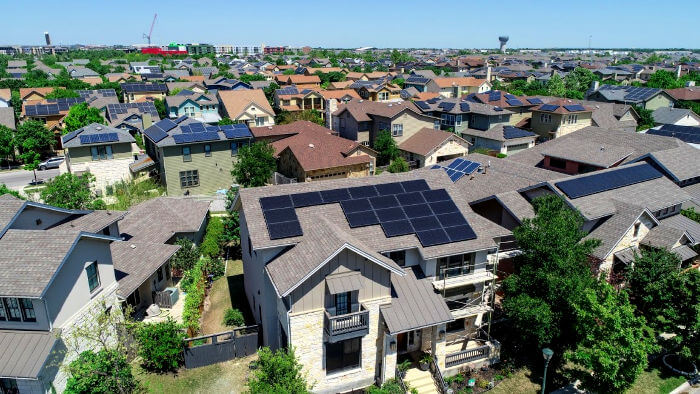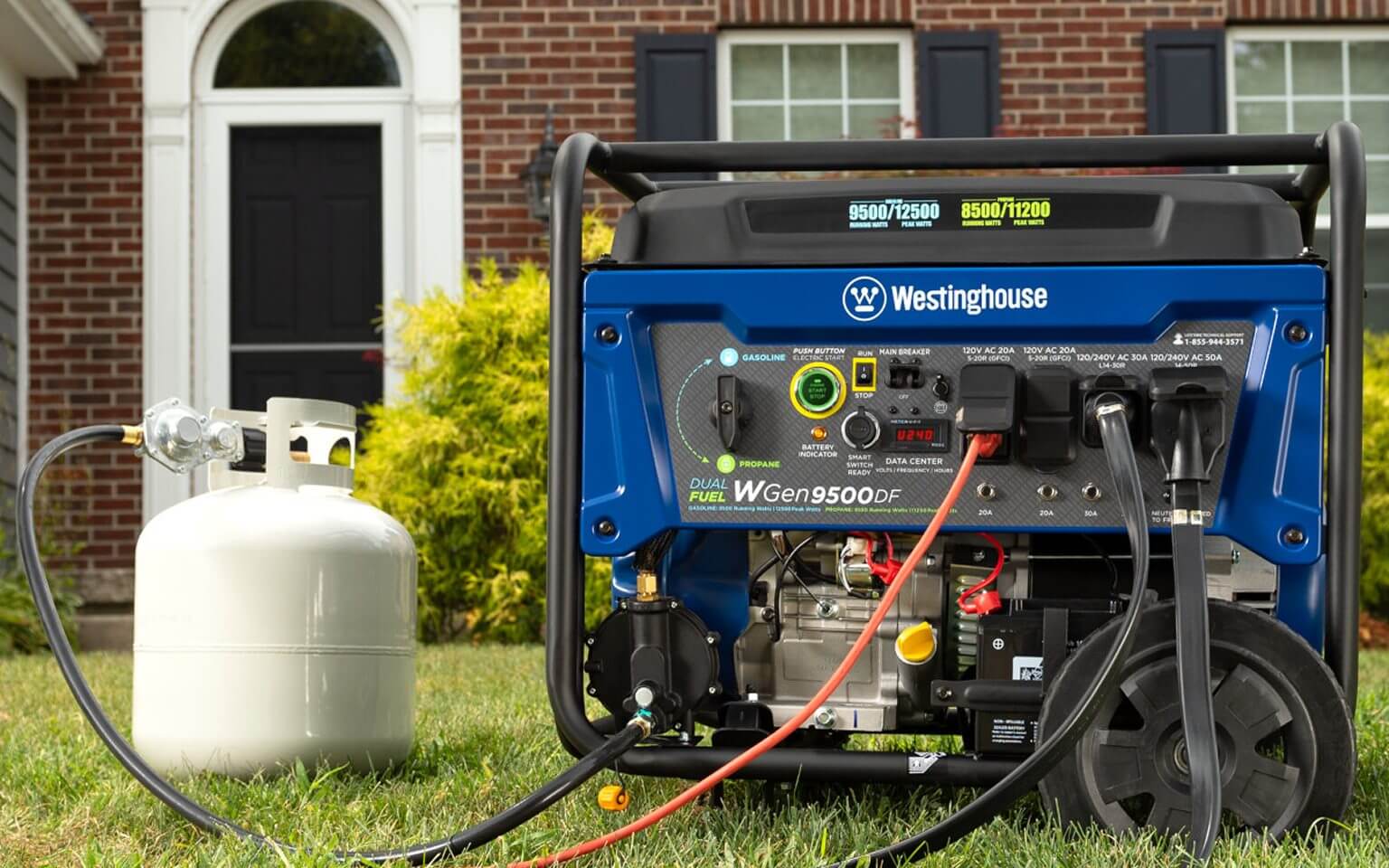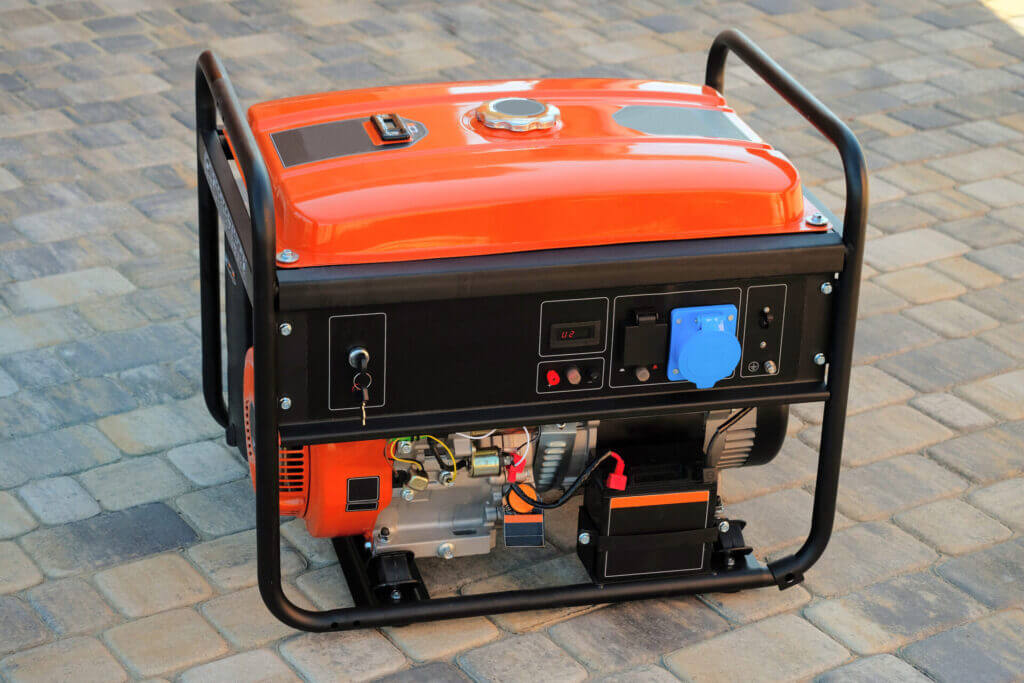Are you doing a solar project?
Modernize can pair you with three to four pros in your area, so you can compare options and save time and money.
Saving Money on Solar: A Guide to Tax Credits in 2026
If you have decided to go solar, you are in good company. Solar installations continue to rise 25% annually as homeowners realize the technology’s benefits and perks. Solar panel installation reduces monthly energy bills and lessens your household’s dependence on energy created by fossil fuels. Long-term, solar panels are better for the environment and your pocketbook.
In the technology’s early days, solar installation was cost-prohibitive for many U.S. households. However, thanks to numerous government incentives, solar panels have become more financially attainable.
In this article, we break down the types of federal, state, and local rebates and tax incentives. We feature specific examples of each, along with additional resources and tips for maximizing your solar installation savings.
2025 Federal Tax Credit
The Residential Clean Energy Credit is a tax credit that allows homeowners to claim a specific percentage of their solar installation on their federal taxes. Homeowners can claim 30% of their qualifying solar system on their federal tax return. This reduces tax liability the same year it was paid for and installed. For example, if your solar panel installation costs $15,000, you can reduce your annual taxable income by $4,500.
What the federal solar credit includes:
- Solar panels
- Solar batteries
- Geothermal pumps
- Installation and contractor costs
- Permitting costs
Keep in mind the federal tax credit only applies to purchased solar systems for first or second homes. Leased solar panels are excluded from the federal tax credit. The 30% credit expires in 2032, after which the credit reduces to 25% in 2033 and 22% in 2034.
State and Local Government Programs
One of the perks of going solar is that you can bundle your rebates and credits to save even more money on your installation costs and accelerate your return on investment. Many states, counties, and even cities offer a variety of incentive programs in their efforts to promote renewable energy adoption.
For a comprehensive list of state and local programs, including deadlines and eligibility information, visit the Database of State Incentives for Renewables & Efficiency (DSIRE). Here is a snapshot of a few top solar states with numerous and generous installation incentives.

Arizona Solar Incentives
With more than 300 sunny days annually on average and a variety of incentives available, Arizona is a top state for solar energy.
- Arizona Residential Solar Income Tax Credit: Homeowners who purchase and install a solar system with a minimum of 5 megawatt capacity can receive a credit of 25% of the cost up to $1,000.
- Sales Tax Exemption: The purchase and installation of solar panels or batteries are 100% exempt from state sales tax.
- Property Tax Exemption: Homeowners are exempt from 100% of any property tax increase resulting from solar installation.
- Net billing: Homeowners are compensated for excess solar power their panels produce at wholesale (below retail) rates.
- Mojave Electric Cooperative SunWatts Renewable Energy Rebate Program: The utility company offers a one-time rebate of five cents per watt of solar capacity installed up to $2,500. The program also applies to solar batteries and includes a $500 rebate for each battery installation of a minimum 5kW capacity.
Massachusetts Solar Incentives
Massachusetts ranks consistently in the top five states for home solar due in large part to its generous solar programs.
- Solar Tax Credit: A state tax credit of 15% of the solar project cost, up to a maximum of $1,000.
- Sales Tax Exemption: Homeowners pay no sales tax on solar installations.
- Property Tax Exemption: Homeowners do not have to pay any property taxes associated with home value increases from solar installations.
- Solar Massachusetts Renewable Target Rebate Program: This program compensates homeowners for solar power produced based on utility market rates and production specifications. While the program has mostly phased out for panel-only installations, homeowners who also install a solar battery can continue to benefit from the program.
- Net Metering: Massachusetts is a net metering state, which means that utility companies provide credits to homeowners whose solar panels generate excess electricity.
New York Solar Incentives
The Empire State boasts several programs that, when coupled with the federal tax credit, offers considerable upfront and long-term cost savings.
- Solar Tax Credit: Homeowners receive a credit on their state taxes for 25% of solar panel installation costs, up to $5,000.
- Sales Tax Exemption: Homeowners pay no sales tax on solar installations.
- Property Tax Exemption: Homeowners do not have to any property taxes associated with home value increases from solar installations
- NY-Sun: State-level program offering various incentives and income-targeted programs through its contractor network.
- Net Metering: Utility companies pay customers for excess energy produced in the form of monthly credits on their monthly bills.
Utility Company Solar Incentives
In addition to federal and state offerings, some local utility companies provide cost-saving programs to customers like cash rebates and credits on monthly bills. Check the DSIRE website or contact your utility provider for availability, eligibility information, and effective dates. Below are a couple of examples of the types of incentive programs they offer:
Net Metering: Utility companies that offer net metering pay homeowners for the excess electricity their solar panels produce at the retail rate. This “payment” comes in the form of a credit on the utility bill that allows homeowners to store and use when they have to rely on the electrical grid for power (evenings, cloudy days, etc.).
Net Billing: Similar to net metering, net billing provides homeowners with credits for excess energy production, however at a lower wholesale rate.
Find the Right Contractor for Your Solar Project
Whether you’re ready to begin your project now or need some expert advice, our network of contractors are here to help. With a few simple questions, we’ll find the best local professionals for you

Manufacturer and Installer Solar Incentives
Solar panel manufacturers and installers periodically offer their own promotions and incentives.
Solar Rebates
Some solar panel manufacturers offer rebates to homeowners as part of their marketing and promotional efforts. Typically solar providers require homeowners to apply directly through their website. Rebate amounts, terms, and conditions vary by provider, so a professional solar contractor is often the best source for the most up-to-date information on available manufacturer incentives.
Solar Financing and Leasing Options
Many solar installation companies offer a financing option for customers who do not want to spend the large upfront cost. Interest rates, promotions, and terms vary by company, and your solar representative can explain your options to help you determine if financing is right for you.
Solar leasing is another option to consider to reduce the cost burden of panel installation. In this scenario, you pay a monthly fee to rent the solar panels for the benefit of reducing your monthly energy bill. The perks are you are not responsible for the large upfront installation costs and the regular maintenance. The disadvantage is, by not owning the system, you do not qualify for the 30% federal tax credit and most local tax and rebate programs.
How to Apply for Solar Rebates
1. Research Applicable Incentives
The first step is to research and discover the incentive programs you are eligible for from your state, county or city, and local utility company. Check the DSIRE website for a complete list of solar rebates and tax credits in your state and local municipality.
2. Start the Paperwork
Some rebate programs require application submission before installation begins. Many solar contractors are well-versed in federal and state incentive programs and will even offer to complete the necessary paperwork on your behalf.
3. Complete the Installation and Inspections
Have a professional solar company install your solar panels to ensure they meet all incentive requirements. Most programs require contractor certification to qualify.
Many contractors will help you gather all the required documentation to prepare for the application processes. This often includes the inspection report, receipt or proof of purchase, and proof of installation. Program requirements vary, so check with your solar contractor or do your research for the specific terms of each incentive.
4. Get Your Federal Tax Credit
Complete and include IRS Form 5695 when filing your federal tax return to receive the 30% Residential Clean Energy Credit. Your tax preparer or attorney can answer specific questions about how the federal credit affects your overall tax liability.

Solar Incentives Takeaways
Federal and local tax credits and rebates can reduce the financial burden of solar panel installation. Combining these programs can decrease your solar payback period so you enjoy long-term energy savings.
Ready to go solar? Explore our network of professional solar contractors near you and get customized quotes.
Find the Right Contractor for Your Solar Project
Whether you’re ready to begin your project now or need some expert advice, our network of contractors are here to help. With a few simple questions, we’ll find the best local professionals for you
Reviews from Real Homeowners
Welcome to Homeowner Resources! We are the Modernize blog. Modernize pairs more than 3 million homeowners a year with pre-vetted contractors in their area. This blog started because we believe homeowners should know everything about their homes, from how their HVAC works to which front door colors they might love. On Homeowner Resources, you can find information on every part of your home, right down to how you can negotiate with contractors to get the best price. Here's more about the blog.
Need a contractor? Learn more about how Modernize finds the right pro for you.




